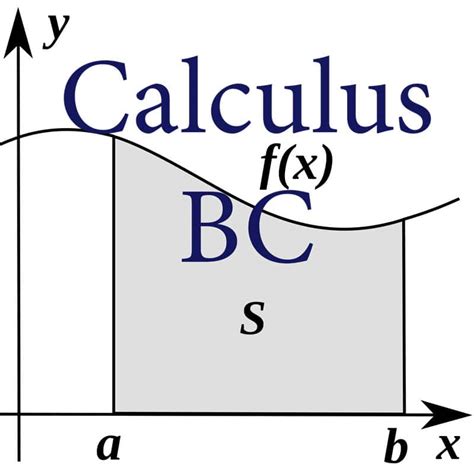The College Board’s Calculus BC Advanced Placement (AP) exam is a rigorous assessment designed to measure students’ proficiency in calculus concepts and their ability to apply those concepts to solve complex problems. The Free Response Questions (FRQ) section of the exam is particularly challenging, requiring students to demonstrate their analytical, reasoning, and problem-solving skills.

Understanding the Calculus BC FRQ
The FRQ section of the Calculus BC exam consists of six questions, each worth 10 points. These questions typically cover a wide range of topics, including:
- Limits and Continuity: Investigating the behavior of functions as inputs approach specific values.
- Derivatives: Determining the rates of change of functions and using them to solve optimization problems.
- Integrals: Finding the areas under curves and using them to calculate volumes and other quantities.
- Applications of Calculus: Applying calculus concepts to model and solve real-world problems in fields such as physics, engineering, and economics.
Preparing for the Calculus BC FRQ
Effective preparation for the Calculus BC FRQ requires a deep understanding of calculus concepts and the ability to apply them creatively. Here are some tips for maximizing your preparation:
Master the Concepts
Thoroughly review your calculus textbook and notes, paying particular attention to the key concepts and formulas. Focus on understanding the underlying principles rather than memorizing specific steps.
Practice Regularly
Solve as many practice FRQ questions as possible. The College Board provides official past papers and practice questions on their website. Use these resources to familiarize yourself with the format and difficulty level of the exam.
Develop Your Reasoning Skills
Practice explaining your solutions clearly and concisely. This will help you develop your reasoning skills and improve your ability to articulate your thought process.
Seek Feedback
Ask your teacher or a tutor to review your practice questions and provide feedback. This will help you identify areas for improvement and strengthen your understanding.
Tips for Answering FRQ Questions
- Read the Question Carefully: Make sure you understand the question and what it is asking before you begin answering.
- Show Your Work: Clearly present all your steps and calculations. Even if your final answer is incorrect, you may receive partial credit for demonstrating your understanding.
- Use Proper Notation: Use the correct mathematical notation and terminology throughout your answer.
- Manage Your Time: Allocate your time wisely. Aim to spend an equal amount of time on each question.
Benefits of Mastering the Calculus BC FRQ
Mastering the Calculus BC FRQ offers numerous benefits for students:
- Improved Problem-Solving Skills: The FRQ section challenges students to apply calculus concepts to solve complex problems, enhancing their analytical and reasoning abilities.
- Strong Foundation for Higher Math: A good performance on the FRQ demonstrates a solid understanding of calculus, which is essential for success in undergraduate and graduate mathematics courses.
- College Credit: Many colleges and universities grant credit to students who score well on the Calculus BC FRQ. This can save students time and money on their college education.
Conclusion
The Calculus BC FRQ section is a demanding but rewarding challenge for students. By following these tips and strategies, students can increase their confidence and maximize their chances of success on the exam. Mastering the FRQ not only prepares students for college-level mathematics but also enhances their problem-solving skills and analytical thinking, benefiting them in their future academic and professional endeavors.
FAQs
Q1. How long should I spend on each FRQ question?
A: Aim to spend between 15-20 minutes on each question.
Q2. How important is it to show my work on the FRQ?
A: Very important. Clearly presenting your steps and calculations can earn you partial credit even if your final answer is incorrect.
Q3. What resources are available to help me prepare for the FRQ?
A: The College Board provides official past papers and practice questions on their website. Textbook solutions and online forums can also be helpful.
Q4. What is the best way to manage my time during the FRQ section?
A: Quickly read through all the questions, allocate your time wisely, and move on if you get stuck on a particular question.
Q5. How can I improve my reasoning skills for the FRQ?
A: Practice explaining your solutions clearly and concisely to others. This will help you develop your ability to articulate your thought process.
Q6. What is the most important thing to keep in mind when answering FRQ questions?
A: Understand the question, show your work, use proper notation, and manage your time effectively.
Q7. How can I make the most of feedback on my FRQ practice questions?
A: Carefully review the feedback and identify areas for improvement. Revisit the concepts and practice similar problems to strengthen your understanding.
Q8. What is the potential impact of scoring well on the Calculus BC FRQ?
A: Scoring well on the FRQ can earn you college credit, demonstrate your strong foundation for higher mathematics, and enhance your problem-solving and analytical skills.
